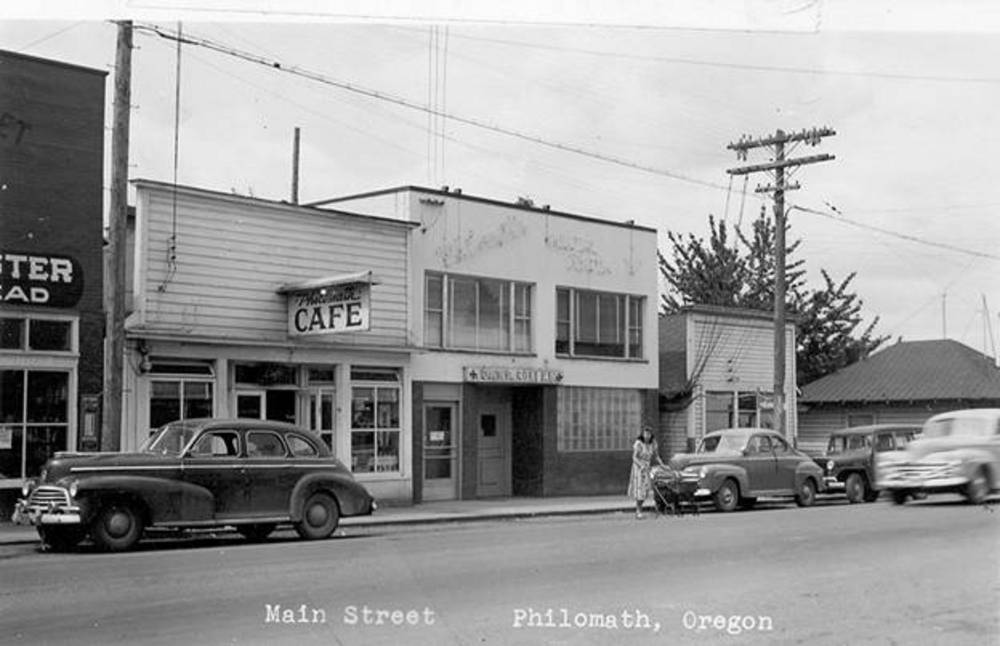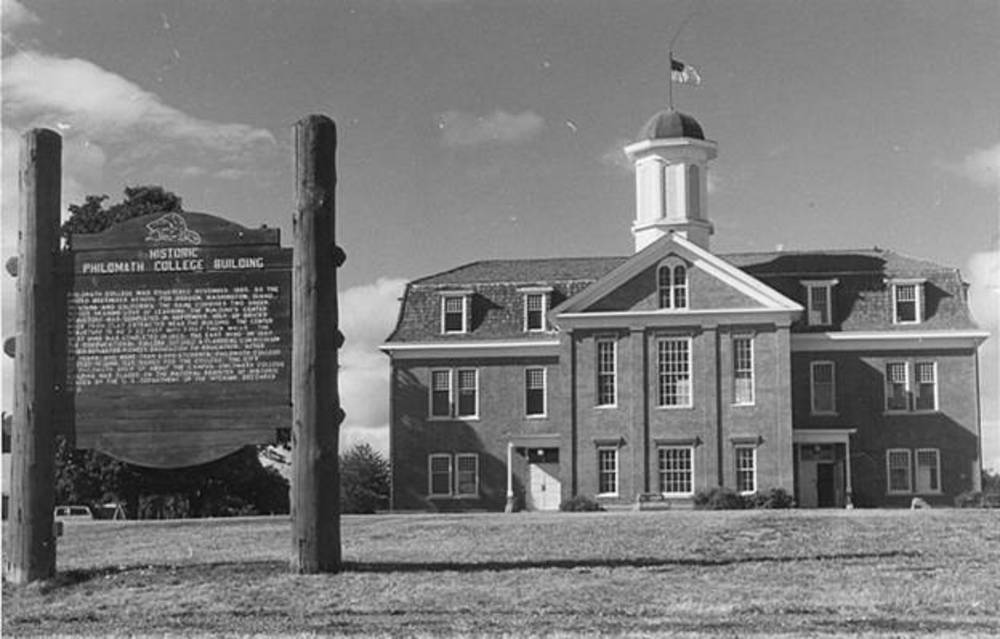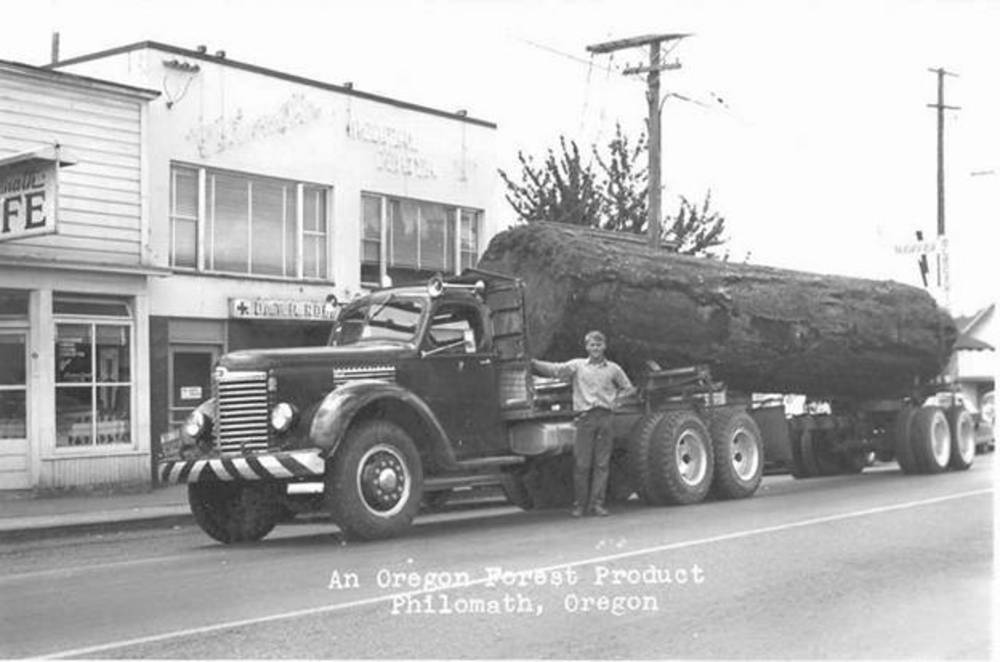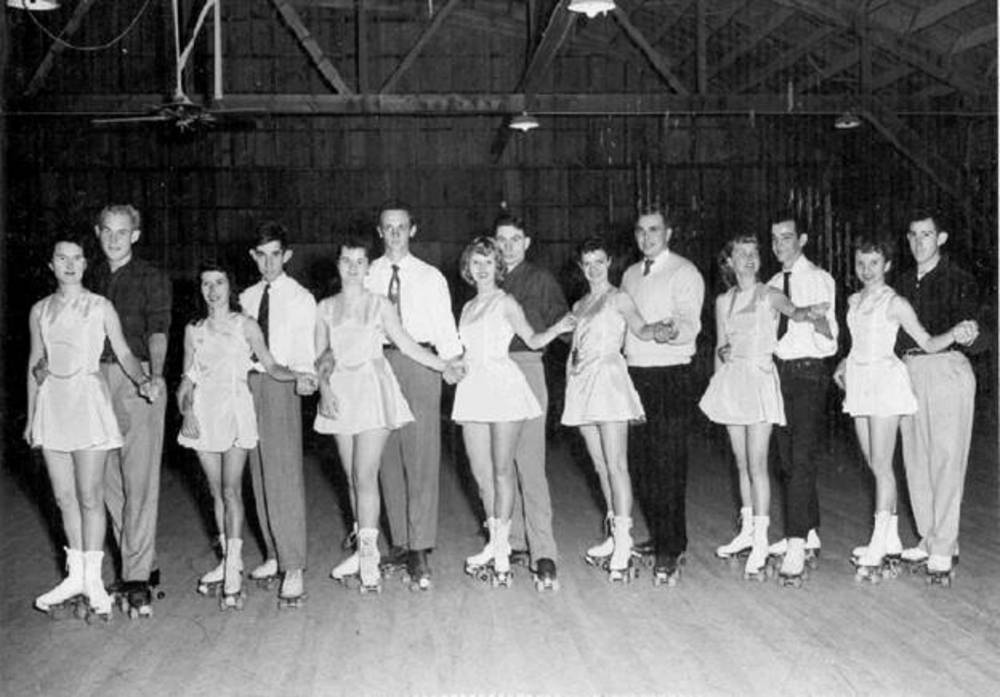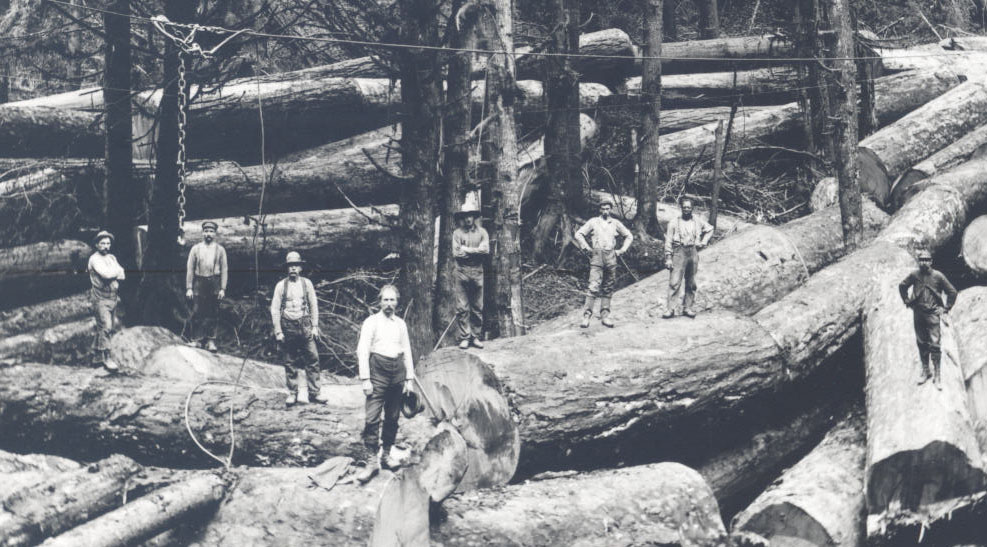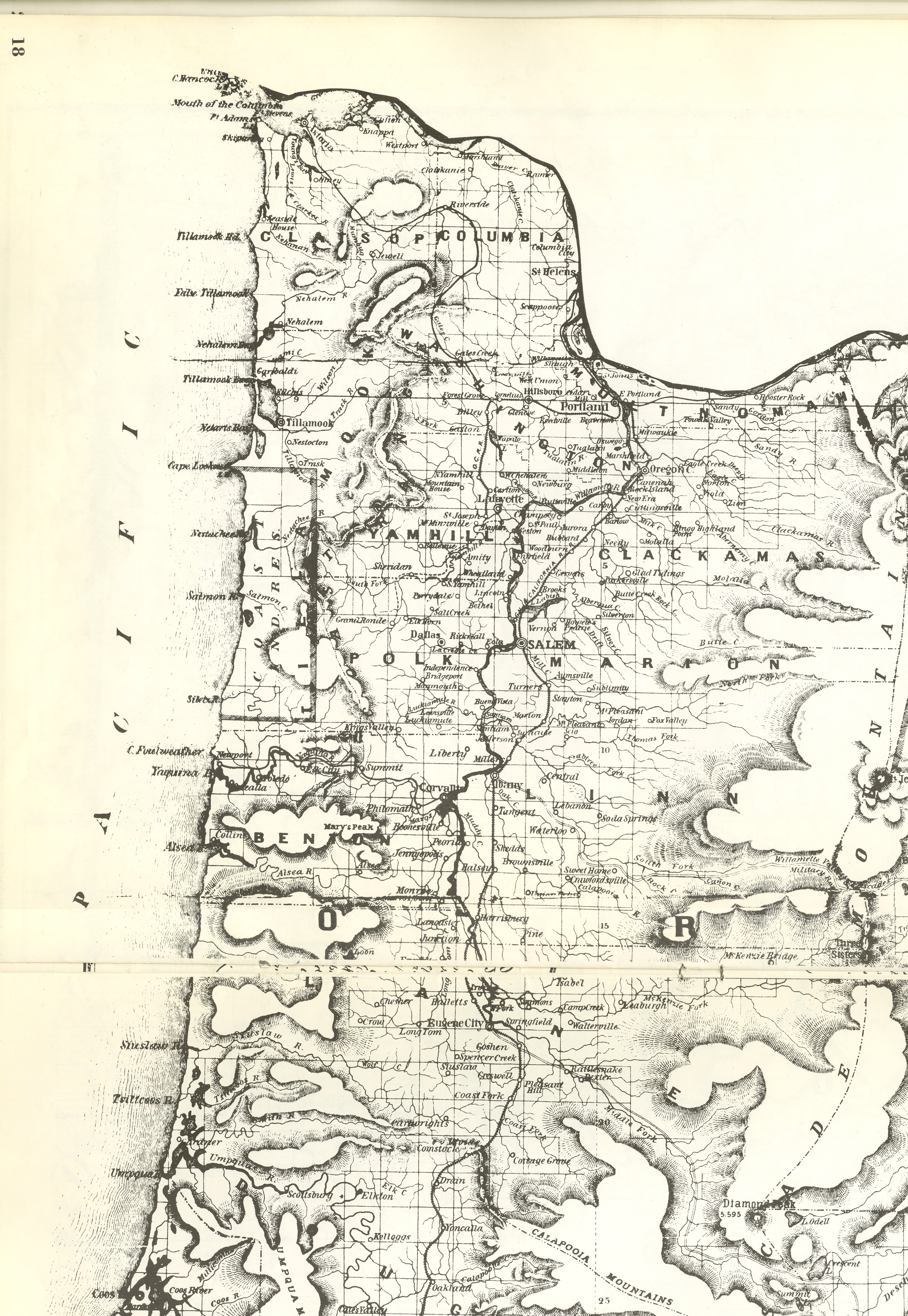A small Willamette Valley community near the Coast Range, Philomath took its name from Philomath College, founded in 1867 by the United Brethren Church. Because of sharply declining enrollment, the college closed during the Great Depression. The name comes from two Greek words meaning “lover of learning.”
Incorporated in 1882, Philomath was a thriving farming and ranching center, shipping agricultural products and wool to nearby Corvallis warehouses and, eventually, to larger urban markets. By the early twentieth century, loggers were making inroads into the lush timberlands surrounding Philomath's hilly backcountry, transforming the town into a major logging and lumbering center. Those activities would remain the mainstay of Philomath's economy well into the twentieth century. When lumber production soared following World War II, sawmills dotted the countryside around the town, providing good-paying jobs in the woods and mills.
The economy of Philomath began to change in the early 1980s as mills closed and unemployment soared. The industry made a slow recovery in the mid-1980s with a small number of highly automated mills that required fewer workers. The emergence of the high-tech industry in nearby Corvallis mitigated the losses, however, and Philomath increasingly became a bedroom community for people employed elsewhere.
During its years as a timber town, Philomath's population grew slowly to about 2,500 people; then the community experienced dramatic growth during the 1990s and into the twenty-first century. Its 2020 population was estimated at 5,350 people. Those changing demographics brought cultural clashes to the community, with some long-time residents resenting the new people and new values in their midst. The conflict was reflected in debates over the selection of high school mascot and other related issues.
Philomath is home to the Benton County Historical Museum, which is housed in the old Philomath College building, and the Philomath Frolic and Rodeo, which is held the second weekend of July. Graduates of Philomath High School are eligible for college scholarships from the Clemens Foundation, a gift to the community from long-time lumberman, Rex Clemens.
-
![Main Street, Philomath, between 13th and 14th Streets, about 1950.]()
Philomath, Main Street, ca. 1950.
Main Street, Philomath, between 13th and 14th Streets, about 1950. Courtesy Benton County Hist. Soc., 1999-001.0045
-
![Philomath College Building and historical marker, about 1980.]()
Philomath College.
Philomath College Building and historical marker, about 1980. Courtesy Benton County Hist. Soc., 1981-068.0078P
-
![Don Maddux poses with a log truck in Philomath, about 1950.]()
Philomath, log truck in, ca. 1950.
Don Maddux poses with a log truck in Philomath, about 1950. Courtesy Benton County Hist. Soc., 1982-002.0003n
-
![Phil-O-Rink Skaters, Philomath, about 1950.]()
Philomath, skaters, ca. 1950.
Phil-O-Rink Skaters, Philomath, about 1950. Courtesy Benton County Hist. Soc., 2007-007.0015
Related Entries
-
![Timber Industry]()
Timber Industry
Since the 1880s, long before the mythical Paul Bunyan roamed the Northw…
-
![Willamette Valley]()
Willamette Valley
The Willamette Valley, bounded on the west by the Coast Range and on th…
Map This on the Oregon History WayFinder
The Oregon History Wayfinder is an interactive map that identifies significant places, people, and events in Oregon history.

